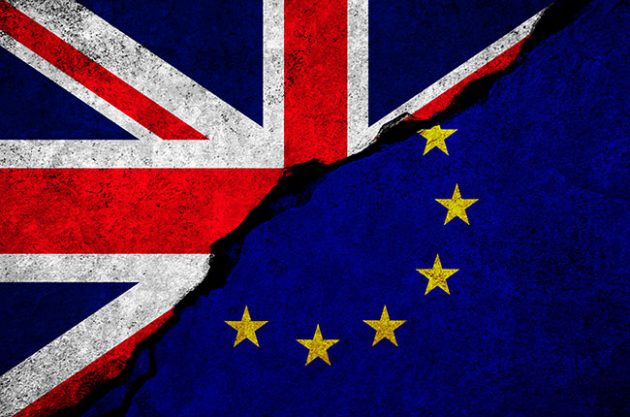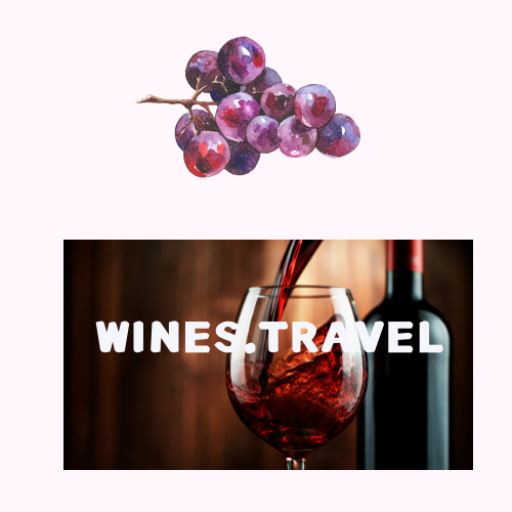Things to tick off your list…

Anson: So Brexit is happening – what next for the wine trade?
Jane Anson reports on a debate at Vinexpo in Bordeaux on the possible Brexit fallout for the wine trade, as UK and European Union officials begin talks.
This is the week it just got real.
After a year of navel-gazing over what exact consistency of Brexit we want in the UK, on Monday morning June 19, David Davis and his team headed to Brussels to opens talks with Michel Barnier, the EU Commission’s chief negotiator that will determine how and when the UK leaves the European Union.
After months of inertia, we just might see things start to come into focus now (well, after the long and civilized European summer holidays of course).
The timing made it a particularly interesting week to hold a conference on Brexit and wine at Vinexpo. I was moderating the debate, and learning a lot, from the brilliant panel of:
- Jean Marie Barillère, head of the European Wine Trade Association and president of the Union of Champagne Houses
- Miles Beale, chief executive of the Wine & Spirit Trade Association in the UK
- Andrew Shaw, group buying director for Conviviality, the UK’s largest wine distributor
- Sean Allison, an ex Merrill Lynch economist originally from New Zealand and now owner of Château de Seuil in Graves, Bordeaux
It was a fascinating talk, not least because it took place on mainland Europe soil and was attended by many stakeholders on the ‘other side’ – including châteaux owners, European merchants (even one importing beer and gin from the UK, who wondered if he should be driving the price down from his UK suppliers given the drop in sterling) and other stake holders.
So, for those of you who didn’t make it to Vinexpo in the sweltering conditions of Bordeaux this week, I thought it might be useful to sum up what was covered, and what we are likely to see emerging over the coming months.
First up, we start the Brexit discussions on very different ground than we expected a few weeks ago. On one level, the hung parliament delivered by the UK electorate on June 8 means more uncertainty after a year of… umm, uncertainty.
And yet for the wine trade, which almost unanimously wishes for trade to continue as uninterruptedly as possible, the result offers plenty of reasons to be cheerful. Most importantly, Prime Minister May no longer has a majority, which makes her vision of an extreme Brexit far less workable.
The more moderate voices are not just speaking up now, but applying seemingly coordinated attacks (see Bank of England Governor Mark Carney and Chancellor of the Exchequer Philip Hammond both giving speeches this week spelling out their desire to move the economy firmly to the top of the agenda, above immigration).
This should mean that wine industry lobbying will start to fall on more receptive ears.
Impact of Currency Devaluation
This, as Beale pointed out, is the only concrete effect that we have seen so far. Sterling is a good 15% down on last year and it has meant that wine prices so far for the UK consumer have risen slowly but surely.
That prompted some of the panel to point out a possible benefit for the trade was that a £5 price barrier in the UK that consumers were traditionally unwilling to move beyond has been firmly broken. The average bottle price was £5.56 in the second quarter of 2017; perhaps not a great trend if you’re a consumer, all the same.
I would add to that the Bordeaux en primeur campaign has been something of a canary in the coal mine when it comes to the longer-term impact. The Bordeaux châteaux raised their prices in 2016 by an average of 12% – not inconsiderable of course, but actually relatively restrained considering the quality of the vintage.
But for British consumers, the prices they were seeing were around 25% higher on average, because nobody was absorbing price rises along the way, as suppliers or distributors might well choose to do in the ‘normal’ run of things on supermarket shelves. That’s a painful and immediate effect for wine lovers to swallow.
Broadly speaking however, Forex was seen as less of a problem by the panel than taxes, with Andrew Shaw saying currency swings are ‘only 1%, 2% or 3% of the total cost of the product. Duty is still the dominant factor in the price per bottle, with VAT on top.’
Beale added that there is also, ‘the UK policy of increasing excise duty by at least inflation, with one increase this year that was linked to retail prices and came out at 3.9%’.
The Divorce Bill
Ah, the famous £100 billion divorce bill. Wise words from Andrew Shaw here, that in terms of minimising uncertainty, it would be better to pay it and move ahead.
He said, ‘A £100 billion for a divorce… or perhaps £60 billion… these sound like a big sums, but if it’s added on to the UK debt pile, it is about 2% of the total, relatively small compared to what happened during the financial crisis, where UK debt increased by about 30% of GDP.
‘So, my view would be let’s get the money sorted out relatively quickly. That is not a big cost to the UK when weighed up against an uncertain period of five years where investment is low and we don’t know where we are going.’
View from Europe
Barillère was quietly reassuring, adopting a similar tone to that we have seen from Michel Barnier to date (and more specifically on Monday). Along the lines of it’s all very regrettable, the EU clear that this was the UK’s choice and respects it, and will support you through it but that some consequences are unavoidable.
He pointed out that although all wine producing countries will be affected in much the same way by Brexit, differences will be seen in terms of how they negotiate (with France seen as the most inflexible) and also in the level of trade negotiations expertise that each country is able to field.
But I would say he was the most confident panel member about what lay ahead, so let’s hope he’s got a direct line into Barnier.
Future for English wine market
One hugely positive thing to come out of the talk, from all sides, was the attractiveness of the British consumer. We know 25% of EU wine exports are destined for the UK market, representing around €2 billion per year, and the UK is the second largest importer of wines in the world.
But there is also the appeal of the individual consumer, and the depth of knowledge found within the market.
Shaw said, ‘the British consumer has always been a test bed for many wine styles, and always been window to the world, and this has huge value for wine brands looking to export internationally.
Allison, as a producer, agreed, calling the UK ‘the world’s most competitive wine market and both attractive and enjoyable because of it’.
The Service Sector
One of the most enjoyable things about wine is that it is part of a wider eating and drinking culture. Which means restaurants, bars, sommeliers, wine shop workers and so on – many of whom will have been made distinctly uncomfortable by the rhetoric coming hard and fast over the past year.
‘The labour market is another way of saying immigration policy,’ said Allison. ‘If we don’t have access to those people … we will have a very difficult situation in terms of the profitability of the service industries.
‘A friend of mine has a chain of restaurants, mainly around London, where he is at about 80% in terms of staff levels from Eastern Europe and Europe generally. I don’t see how we can decouple the immigration argument from the trade argument, for me that is the crux of the matter.’
Potential of euro trading for the UK?
This is a rumor I heard a few weeks ago; about a number of UK merchants looking at trading in euros from next year. I asked the question to the audience but nobody confirmed any plans. So I asked a few traders this morning if it would be feasible, and they said… not really.
Wine merchants becoming (effectively) currency traders would hardly be desirable, especially in a market as unregulated as wine trading.
And if any UK wine merchants were instead to open a European head office and make it their main accounting centre, then it’s game over for London as the world’s wine merchant.
But no amount of history is going to stop the biggest wine merchants from wanting to maintain their bottom line and future, so I would suggest that if reassurances on business are not forthcoming soon, the idea of being based in the euro zone will become increasingly attractive.
This is a big question, one that is being grappled with by the banking sector and many others, and I’m certainly going to be looking into it further.
Timetable from Here
As you know, the Brexit talks started on Monday and from now the teams (so Tim Barrow, David Davis, Oliver Robbins, Philip Rycroft and Glyn Williams for the British and François Arbault, Michel Barnier, Philippe Bertrand, George Emil Riekeles, Richard Szostak, Sabin Weyand, Nicolas de la Grandville and Stéphanie Riso for the EU) will meet for one week every four weeks.
The first sessions will deal with financial settlements and obligations, plus the status of EU citizens in the UK and UK citizens in the EU and the Irish border issues.
Only then will they turn to future trade deals – likely to be in October – with six months needed at the end of the two-year period for the 27 member countries to ratify any agreements. That’s going to go by awfully quickly.
On the bright side, for our industry at least, there is a symmetry of trade balance – €2.5 billion worth of wine entering UK and €2.2 billion of spirits leaving it, something that led Barrillère and Beale to feel relatively optimistic (‘as long as the politicians don’t get in the way’) about the length of time needed – plus of course, they pointed out, our ‘red tape’ today is exactly the same across all industries, which should also speed things up.
However, they all pointed out that ratification is one thing, implementation is another.
So good news that the noises from politicians this week seems to be that an adjustment period and interim agreement looks more likely. ‘All talk of ‘no deal is better than a bad deal’ seems to have gone away,’ said Beale.
In short – the trade wants to keep the politicians from messing things up…
This might be naive of course, and one former Washington reporter at the conference pointed out, keenly aware that politicians can’t help themselves from scoring points off each other.
We spoke about plenty of instances were politics most clearly affected trade – the 2003 Iraq war and the 1990 nuclear weapons testing in the South Pacific being just two examples.
But nevertheless that was undoubtedly the message coming across from these senior members of wine industry – two of whom it is important to note will be part of the lobbying battle ahead.
Beale summed up the task before them succinctly. ‘We are working very very hard to ensure that everything stays the same,’ he said. Let’s all wish them the best of luck with that.
Still want more? Read our Brexit coverage below:
Brexit effects are starting to bite, says wine body…
Britons fear a Champagne ban after Brexit…
What does Brexit mean for everyday supermarket wine prices?
Buyers in US, Asia and Europe eye wine deals…
Can the UK still attract enough talent?…
Find out what Bordeaux is thinking…
